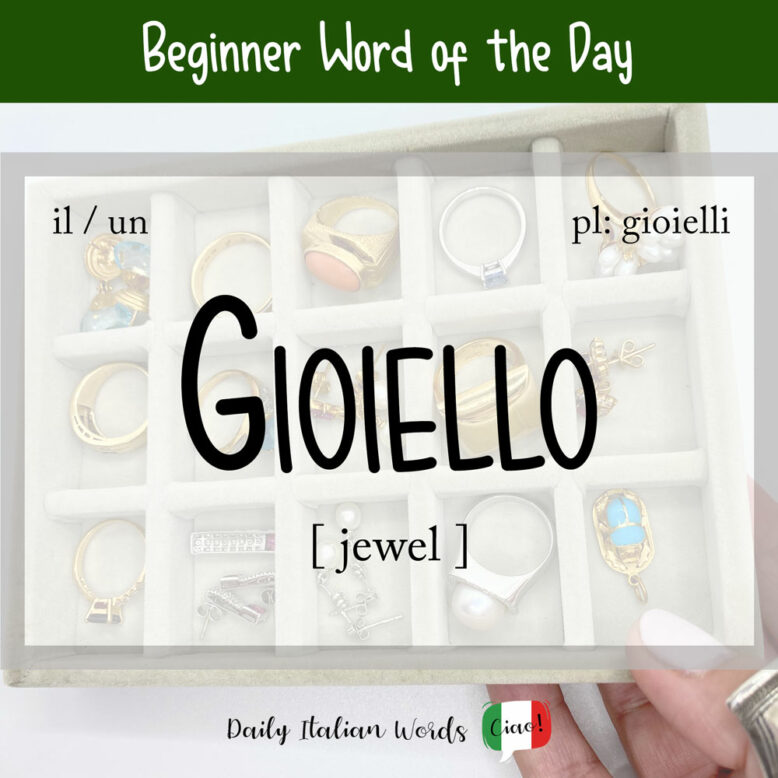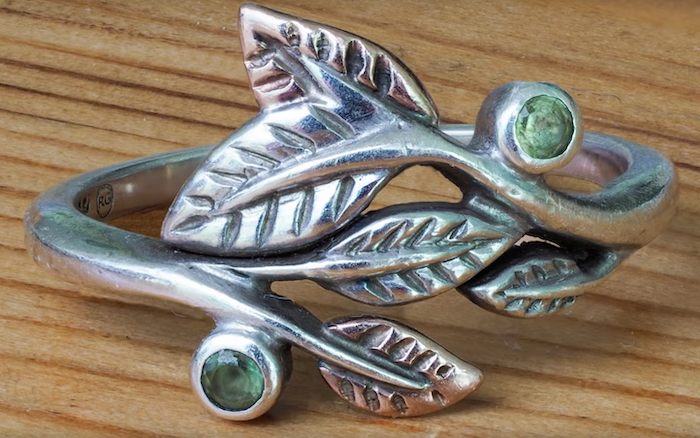It is believed that the words jewel and gioiello (masculine, plural: gioielli) are both derived from the Latin word iocus, meaning joke or jest.

In its plural form, gioielli translates as either jewels or the mass noun jewellery.
Mia nonna tiene tanti gioielli dentro una scatola nella sua stanza.
My grandma keeps lots of jewellery inside a box in her room.
Some popular types of jewellery in Italian include:
- anello = ring
- orecchini = earrings
- collana = necklace
- braccialetto = bracelet
- piercing al naso = nose ring
The place where jewellery is sold is called a gioielleria (jewellery shop) whereas the person who sells jewellery is known as a gioielliere (jeweller).

Figuratively, the word gioiello can also be used to refer to something precious, such as a person, city, or prized possession.
Torino è una vera città gioiello.
Torino is a real jewel of a city.

From the word gioiello we also get the diminutive gioiellino, which is used far more often in the aforementioned figurative sense than to mean little jewel. It is also a possible term of endearment for another person.
Ciao gioiellino, come stai oggi?
Hi little jewel, how are you today?
Heather Broster is a graduate with honours in linguistics from the University of Western Ontario. She is an aspiring polyglot, proficient in English and Italian, as well as Japanese, Welsh, and French to varying degrees of fluency. Originally from Toronto, Heather has resided in various countries, notably Italy for a period of six years. Her primary focus lies in the fields of language acquisition, education, and bilingual instruction.


